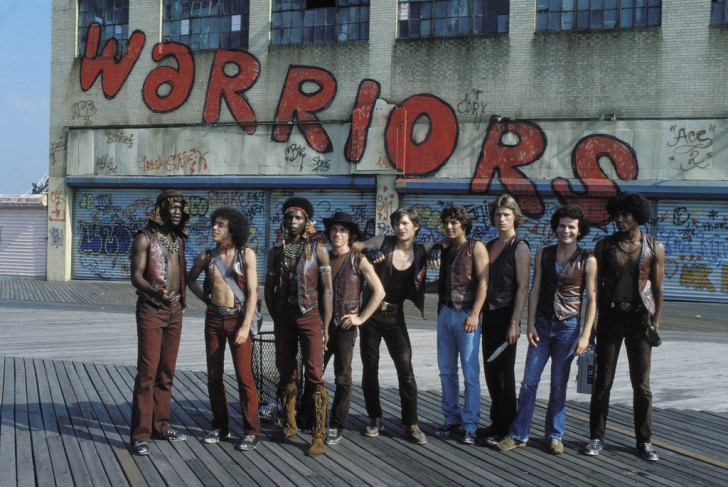When taking the time to consider the film Absolute Beginners and its depiction of the Notting Hill riots as a kind of rock opera compared to the novel’s depiction of a darker, more somber toned version of events, we see the conflict of image vs. word. Consider MacInnes’ descriptions: “Quite decent, respectable people they seemed, too: white-collar workers and their wives, I expect, who’d probably been out to do their shopping. Well, they saw the lads get in the Spades’ car, and drive it against a concrete lamp-standard, and climb back in their handy little delivery vans, and drive away” (246). The crowds of white collar workers, quite civilized, escalating racial violence. “Then came another incident–and soon, as you’ll understand, I began to lose count a little, and, as time went on, lose count a bit of what time was, as well” (247). The narrator’s loss of time seems to be a loss of existential identity in the temporal landscape–but it is not silly. The crowd is searching for violence. For a subject to exact violence upon.

“Well they weren’t disappointed long. Because out of the Metropolitan Railway station–the dear old London Transport, we all think so safe and reliable–came a bunch of passengers, and among them was a Spade” (247). The subject to be brutalized. “A boy of my own age, I’d say, carrying a holdall and a brown paper parcel–a serious-looking kiddy with a pair of glasses, and one of those rather sad, drab suits that some Spades wear, particularly students, in order to show the English people that we musn’t think they’re savages in grass skirts and bones stuck in their hair” (247). What is to be made of the image of this poor victim, so much in contrast to the vibrant silliness of the film’s West Side Story-ish portrayal of the Notting Hill riots?

I remember an American movie from 1979–The Warriors–a film based on Sol Yurik’s dark novel about gang warfare. The film became a greatly exaggerated version of the book, a musical or fantasy, if you will, as the director felt no one would allow him to make a direct adapation. Hollywood lore posits violence and rioting broke out in response to the film despite its fantastic tone. Fear of glorifying gang violence on the bigscreen became a talking point in the media even though the Warriors depicted gangs of mimes on roller skates, rednecks in overalls, and a weirdo who wore beer bottles on his fingers. This fantastical version of gang warfare in New York sparked fear and debate about how violence should be depicted on screen.
Whether or not this ultimately affected the 1986 adapation of MacInnes’ Absolute Beginners is certainly worth debating, but the spectacle of seeing rioting, the imagery of gang warfare displayed as an actual dance number, allows us to wonder.
America’s subcultures in the late 70s and 80s were marked by fear and violence. Gangs prowling the urban America. To show the reality of this on the bigscreen would be to glorify it–or so people believed.
Works Cited
MacInnes, Colin. Absolute Beginners. Allison and Busby, 1980.










You must be logged in to post a comment.